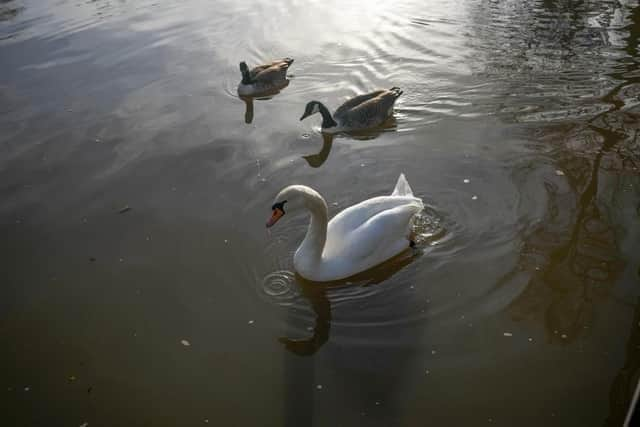Fresh bird flu fears as dead swans are discovered at Doncaster beauty spot
and live on Freeview channel 276
The bodies of the animals were discovered in the lake at Cusworth Hall earlier this week, the Free Press understands, with DEFRA, the Department for the Environment, Food and Rural Affairs notified of the find.
It comes after a number of swans were found dead at Lakeside in January and a confirmed outbreak of avian flu in the Cantley area last year.
Advertisement
Hide AdAdvertisement
Hide AdAt this stage there is no confirmation that the swans found dead at Cusworth were victims of the HN51 virus.


A spokesperson for DEFRA said: “The Animal and Plant Health Agency (APHA) carries out year-round surveillance of dead wild birds submitted via public reports and warden patrols as part of its wild bird surveillance programme.
"APHA triages reports and does not collect all birds. They adjust the collection thresholds for dead wild birds for different species to increase or decrease the sensitivity of surveillance.
“APHA and their contractors then collect some of these birds and test them to help us understand what risk posed to poultry and other captive birds is through understanding how the disease is distributed geographically and in different types of wild bird, not all birds will be collected.
Advertisement
Hide AdAdvertisement
Hide Ad“Wild birds are susceptible to a range of diseases and injuries and not all dead birds will have been infected with avian influenza.”
“We are unable to comment on any testing or reports that are not listed at this site as the results will not yet be ready for publication.
“The status of dead wild birds reported online or via the helpline – 03459 33 55 77 - can be checked by entering the location of your report or your Defra reference number (prefixed by WSF- or REP-) in the interactive maps search box.”
The spokesperson added: “Do not touch or pick up any dead or visibly sick birds that you find.
Advertisement
Hide AdAdvertisement
Hide Ad“Wash your hands thoroughly with soap and water if you touch wild bird faeces or feathers or after feeding wild birds.
“In Great Britain members of the public are encouraged to report findings of dead wild birds using the online reporting system or by calling the Defra helpline (03459 33 55 77). However, if wildlife crime is suspected this should be reported to the police immediately.”
Last April, restrictions were put in place following an outbreak of bird flu in South Yorkshire.
DEFRA said the H5N1 virus "was confirmed in commercial poultry" at a site near Cantley in Doncaster.
Advertisement
Hide AdAdvertisement
Hide AdA 2-mile (3km) protection zone and a 6-mile (10km) surveillance zone were put in place around the area.
All the birds on the affected premises were humanely killed, Defra said.
Bird flu is an infectious disease of poultry and wild birds that has been around for a century. It usually flares up in autumn before fading away in spring and summer.
It can spread through entire flocks of domestic birds within a matter of days, through birds' droppings and saliva, or through contaminated feed and water.
The H5N1 virus, which is the most prevalent strain now, was first reported in China in 1996.
Comment Guidelines
National World encourages reader discussion on our stories. User feedback, insights and back-and-forth exchanges add a rich layer of context to reporting. Please review our Community Guidelines before commenting.